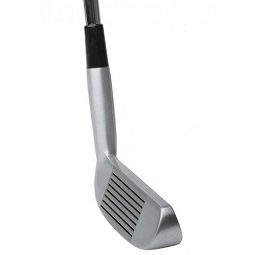Golf chippers are specialized clubs designed to make short, accurate chip shots around the green. These clubs are particularly useful for golfers who struggle with their short game, as they can provide added consistency and control. But are golf chippers legal under the rules of golf? To answer this question, it is essential to examine the equipment regulations set forth by the United States Golf Association (USGA) and the Royal and Ancient Golf Club of St. Andrews (R&A).
Golf Equipment Regulations
The USGA and R&A jointly govern the rules of golf, including equipment regulations. These organizations maintain strict guidelines to ensure that the game remains fair and competitive for all players. Golf equipment rules cover various aspects, including club design, size, weight, and materials.
The 14-Club Rule
One key regulation to consider when discussing golf chippers is the 14-club rule. According to Rule 4.1b of the Rules of Golf, a player is allowed to carry a maximum of 14 clubs in their bag during a round. Golfers must choose their clubs wisely to cover various situations they may encounter on the course.
Golf Chippers and the Rules of Golf
Golf chippers, like any other club, must adhere to the design and performance specifications outlined by the USGA and R&A. If a chipper complies with these regulations, it is considered legal for use in both casual and tournament play. Some key factors to consider when determining the legality of a golf chipper include:
- Groove Specifications: Golf chippers must adhere to the groove specifications set by the USGA and R&A. These specifications cover groove width, depth, and spacing to ensure that the club does not provide an unfair advantage.
- Clubhead Design: The clubhead of a golf chipper must not be designed in a way that could breach the rules governing clubhead dimensions, including heel-to-toe length, width, and thickness. Furthermore, the clubhead must not feature any sharp edges or points that could damage the golf course.
- Shaft Length and Flex: The shaft length of a golf chipper must be within the allowable range for clubs, and its flex characteristics should comply with the regulations for shaft flexibility.
- Grip: The grip of a golf chipper must meet the rules governing grip design, including size, material, and texture.
Additional Considerations for Golf Chippers
While golf chippers are generally considered legal as long as they meet the equipment regulations set forth by the USGA and R&A, there are some additional factors to consider when using these clubs in different playing situations.
- Local Rules and Conditions of Competition: It is important to note that certain golf courses or tournaments may have specific local rules or conditions of competition that may affect the use of golf chippers. Always familiarize yourself with any additional restrictions in place before using a golf chipper in a new environment.
- Skill Development: While golf chippers can be advantageous for some players, they may also act as a crutch that prevents golfers from developing a well-rounded short game. Utilizing a variety of clubs around the green, such as wedges and putters, can help golfers improve their overall skill set and adaptability on the course.
- Customization and Fitting: Like any other golf club, a properly fitted golf chipper is crucial for maximizing performance. Golf chippers come in various loft angles and lengths, so it is essential to find one that suits your swing and body type. Consulting with a professional club fitter can help you identify the best chipper for your game.
- Etiquette and Pace of Play: While golf chippers can improve your short game, it’s essential to be mindful of your playing partners and the overall pace of play. Over-reliance on a golf chipper may slow down the game for others on the course. Be sure to use your chipper efficiently and be aware of the golfers around you to maintain a good pace.
- Practice: As with any other club, practice is key to mastering the use of a golf chipper. Spend time at the practice green or chipping area working on various chip shots with your chipper. This will help you become more confident and consistent when using the club during a round.
Conclusion
In summary, golf chippers are legal for use in both casual and tournament play, provided they comply with the equipment regulations set forth by the USGA and R&A. Golfers should always check the specifications of their chippers to ensure they meet these standards. Keep in mind the 14-club rule when selecting your clubs for a round, and choose a combination of clubs that will best suit your game and the challenges of the specific course you are playing.


